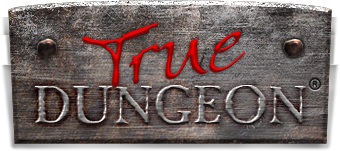Remember that the PCs usually don't know what would have happened if they didn't have freedom of movement - the DMs aren't supposed to discuss module mechanics openly during a session. If the effect could have been interesting - you'd never know.
I do agree that TD should do its best to avoid, "if you don't have token <X>, you get no actions this round." A more nuanced approach is more fun. Here are a couple examples...
"The glowing goo you are standing in seems to seep through your boots and into your skin. If you don't have freedom of movement, you feel your limbs going rigid. This round you can't take any free actions." Then follow that the next round with, "those still affected by the goo can no longer move their legs and must slide with their non-dominant hand to reflect you going more rigid - monks and rangers get only 1 attack." Then round three, "You find you cannot move your body anymore - you are restricted to just mental actions such as with the skull."
These hazards can also create opportunities like in this example...
"The room is suddenly engulfed in webs as a giant spider appears out of a secret hatch in the wall. If you don't have the ability to move freely in webs, you may not move and can only attack the spider with one handed weapons. If you have freedom of movement, you may work your way through the webs to the spider with effort. If you have the web-walking super-power, you may go anywhere in the room and attack with advantage - allowing you to reslide your puck if you wish. Web walkers may also investigate areas not normally reachable in the room by skating along the webs."
Freedom of movement is a massive change to how combat operates (true in D&D as well.) Of course, in D&D, you have a limited number of attunement slots for special abilities and don't usually have your free action item attuned. True Dungeon has the problem that you can attune to dozens of different tokens in a single build. As TD continues year to year, the problem gets worse.
A possible solution here might be to add a classification of token as "attunable" and limit how many you can attune that have special abilities. D&D had to add that during play-testing for 5th edition because PCs became far too powerful otherwise. It created scenarios where the power difference in a single party required killing everyone to even threaten the more equipped PCs. We see the same problem in TD for the same reason. If you had to choose 3-5 tokens that had special powers beyond a + to hit or AC or a stat, I'm not sure how many people would pick freedom of movement over class necklaces, skull powers, quick strike, spell swapping, spell storing, divine sight (splitting healing), guided strike, supreme elemental resistance, libram of looting, soul coffer, expertise (crown or ring), bardic instrument powers, holy sword special powers, shadowskin, displacement, blending, or artifact powers. That change, by itself, would help balance parties better and force build choices and more party mutual support.
The attunement idea goes beyond the current discussion but would help for future proofing token design.
Fred





